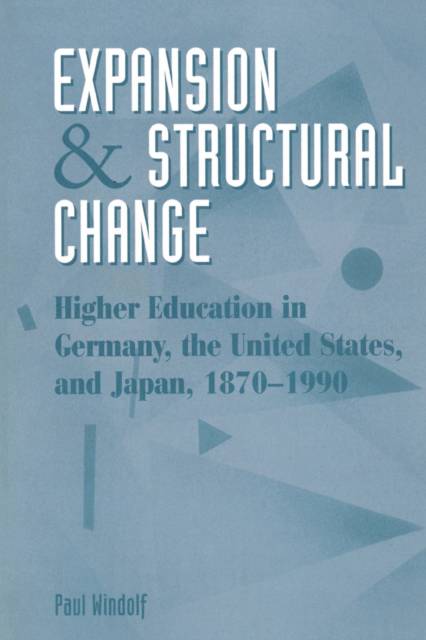
- Afhalen na 1 uur in een winkel met voorraad
- Gratis thuislevering in België vanaf € 30
- Ruim aanbod met 7 miljoen producten
- Afhalen na 1 uur in een winkel met voorraad
- Gratis thuislevering in België vanaf € 30
- Ruim aanbod met 7 miljoen producten
Zoeken
Omschrijving
As a central institution that ensures equality of opportunity and social justice, the university is the most important channel of social mobility in modern societies. Over the past century, universities have assumed an important role in the political and cultural emancipation of women, minorities, and the lower socioeconomic classes. This expansion in educational institutions was not an isolated event in the years after the World War II, but rather a phase in a longer, secular process of modernization which started in the late nineteenth century and continues up to the present day.Expansion and Structural Change explores this development, focusing on the social background of students and the institutional transformation of higher education in several countries. Who have been the beneficiaries of this remarkable process of educational expansion? Has it made Western society more open, mobile, and democratic? These questions are analyzed from a historical perspective which takes into account the institutional change of universities during this century.Based on archival data for the United States, Germany, Japan, France, and Italy, this study combines both comparative and historical perspectives. It documents the political struggle of different social groups for access to univeristies, as well as the meritocratic selection for higher status positions. This work will be an indispensable reference for anyone searching for a comparative and historical analysis of higher education in the most advanced countries.
Specificaties
Betrokkenen
- Auteur(s):
- Uitgeverij:
Inhoud
- Aantal bladzijden:
- 294
- Taal:
- Engels
Eigenschappen
- Productcode (EAN):
- 9780813366630
- Verschijningsdatum:
- 6/10/1998
- Uitvoering:
- Paperback
- Formaat:
- Trade paperback (VS)
- Afmetingen:
- 153 mm x 229 mm
- Gewicht:
- 476 g

Alleen bij Standaard Boekhandel
+ 78 punten op je klantenkaart van Standaard Boekhandel
Beoordelingen
We publiceren alleen reviews die voldoen aan de voorwaarden voor reviews. Bekijk onze voorwaarden voor reviews.











